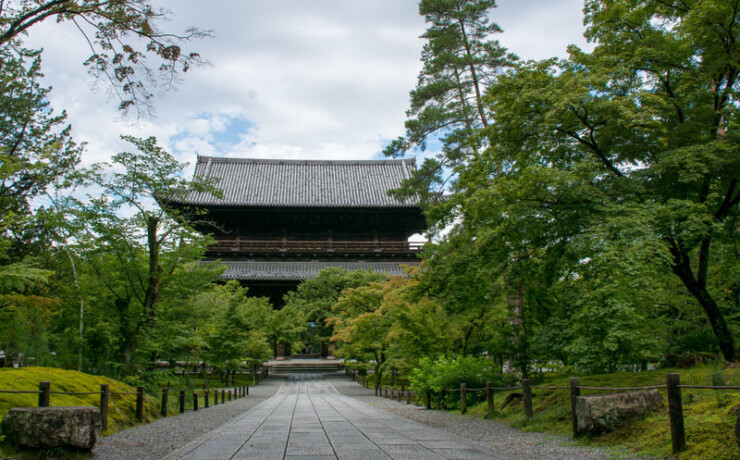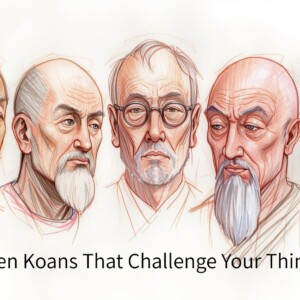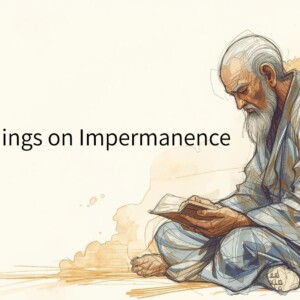
The Sound of One Hand Clapping: Meaning and Myth in Zen
Few phrases in Zen are as famous—or as puzzling—as “the sound of one hand clapping.” At once poetic and paradoxical, it invites reflection, confusion, and deep contemplation. Is it a riddle? A spiritual test? A philosophical joke? Or something far more profound?
In this article, we explore the meaning and myth of the sound of one hand clapping, tracing its roots in Zen tradition, its purpose as a koan, and how it continues to challenge and inspire seekers today.
The Origin of “The Sound of One Hand Clapping”
The phrase originates from a Zen koan—a paradoxical question or statement used in meditation practice, particularly within the Rinzai school of Zen Buddhism. Koans are not riddles to solve intellectually but tools to transcend ordinary thinking and point the practitioner toward direct experience and awakening.
“You know the sound of two hands clapping. What is the sound of one hand?”
— Hakuin Ekaku, 18th-century Zen Master
This koan, attributed to Hakuin, is one of the most widely recognized in the Zen world—and also one of the most misunderstood.
The True Meaning of the Sound of One Hand
1. It Challenges Dualistic Thinking
Most of us think in terms of opposites: sound/silence, presence/absence, self/other. This koan challenges those mental habits by pointing to what lies beyond duality.
By asking for the sound of one hand, it invites us to drop logic and enter the realm of direct, non-conceptual awareness.
2. It’s Not About the Answer—it’s About the Experience
Trying to “figure out” the sound of one hand misses the point. The koan is meant to create a mental impasse, pushing the practitioner to go beyond thought into pure presence.
In Zen practice, the koan becomes something you live with. You sit with it. You breathe it. Until the mind lets go—and insight arises, not as an idea, but as a shift in perception.
3. It Points to Emptiness and Interdependence
The sound of one hand is not silence. Nor is it noise. It is neither and both—a doorway into emptiness, a key concept in Zen that refers not to nothingness, but to boundless potential and interbeing.
What is a hand without another to clap? What is sound without a listener? The koan shows us that all things exist in relation, and yet are ultimately ungraspable.
The Myth and Misuse of the Phrase
In popular culture, “the sound of one hand clapping” is often dismissed as a clever joke or used to mock mysticism. But in Zen, this koan is taken seriously—not as a literal question, but as a profound pointer to non-dual awareness.
Myth: It’s a trick question with no answer.
Truth: It’s a practice to dissolve the need for answers and enter direct presence.
Misunderstood, it frustrates. Lived fully, it awakens.
How to Work with This Koan
If you want to engage with “the sound of one hand clapping” in your practice:
-
Don’t try to solve it like a puzzle.
-
Sit with it during Zazen. Let it echo in your awareness.
-
Notice your reactions—frustration, analysis, insight. All are part of the path.
-
Let it bring you back to now. Each breath, each step, is the sound of one hand.
“The sound of one hand is the sound of this moment—undivided, whole, and complete.”
Final Thought: A Sound Beyond Sound
“The sound of one hand clapping” is not meant to be answered—it’s meant to be entered. It is the sound of this breath, this stillness, this presence—before naming, before grasping.
In Zen, truth is not what you know. It’s what you become aware of when knowing falls away.
So listen. Not with your ears.
With your whole being.
🌿 Want to go deeper into Zen and mindful living?
Explore ZEN for LIFE — a gentle guide to bringing presence, simplicity, and calm into your everyday routine.
Now available on Kindle.
#ZENforLIFE #MindfulLiving #EverydayZen










この記事へのコメントはありません。